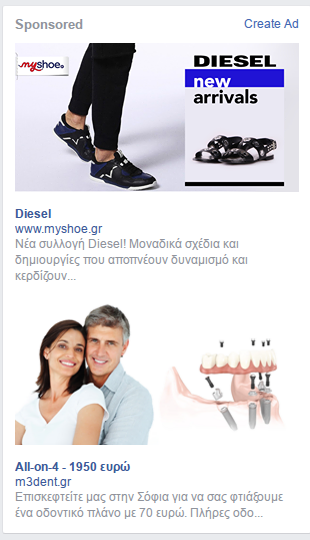Will Opera be nixing certain adblockers like Google Chrome will be doing?
-
A Former User last edited by
I doubt add blocking will be coded into Chromium, it will cause dissent, especially among other Blink engine users like Apple and also Opera. I am almost sure its going to be a module separate from the Chromium open source project.
Also, add blocking was never a feature of Chrome, people had to get add-blockers from third party extension makers. Add blocking though is a feature and drawing card to Opera and wont easily be abandoned.
-
A Former User last edited by
@skyrim2011 This is incorrect. The changes will be done to the webRequest API.
Apple has their own fork of Chromium for quite a while so they won't be effected. And yes Opera will be effected as well if they will use the latest Chromium version and don't maintain their own version of the webRequest API. -
A Former User last edited by A Former User
@thisisausername
That is a shame, I hope it don't play out like that. I do white-list many sites I go on, especially those with good content and without annoying pop up and half screen banner adds. I thus try to support creators and journalists online. But there are still so many sites with annoying internet adds and trackers that an add-blocker is necessary imo. These people that sell and gather our info from trackers and adds are also the ones that oppose net-neutrality so I don't have much sympathy for them. Add blocking is forcing marketers to feed adds and gather information in a responsible and netizen friendly way. -
blackbird71 last edited by
The changes to the current webRequest API involve replacing/restricting that API with a declarativeNetRequest API which prevents extensions (adblockers, user-agent switchers, anti-phishers, etc) from taking action before page loading occurs. Moreover, it imposes heavy table-size limits on site white/black listings within the extension, forcing more remote look-up actions in screening URLs or content in a loaded page.
Ostensibly this is being done to prevent abuse by rogue extensions and to "improve performance" during page loads, but the claimed performance effect are arguably minimal. Given that Google earns considerable portions of their revenue from ads/marketing, there is a high likelihood that Chrome/chromium developers are being pressured by such interests to reduce the effectiveness of ad blocking in their browser family.
For the technically-interested, part of the discussion/debate between extension developers and Chrome/chromium developers can be observed at https://groups.google.com/a/chromium.org/forum/#!topic/chromium-extensions/veJy9uAwS00 and in its fore-runner thread (now restricted): https://bugs.chromium.org/p/chromium/issues/detail?id=896897.
-
A Former User last edited by
The Vivaldi browser is promising that they will ensure ad-blocking can continue after this upcoming phasing out of the webRequest API by Google/Chromium. Hopefully, Opera can do the same.
-
A Former User last edited by
In case you have not heard it somewhere, google plans to cripple adblocking addons with chrome extension manifest v3
https://9to5google.com/2019/05/29/chrome-ad-blocking-enterprise-manifest-v3/
https://groups.google.com/a/chromium.org/forum/m/#!msg/chromium-extensions/veJy9uAwS00/9iKaX5giAQAJDevs of other chromium based browsers have already taken a position on that.
Brave
https://twitter.com/BrendanEich/status/1133767653472923648
https://twitter.com/BrendanEich/status/1133878509342846977Vivaldi
https://vivaldi.com/blog/chromium-ad-blockers-choice/So I would like to hear what the opera devs plan on doing.
And no, I do not use opera's built in adblock because it allows some ads to pass thtough. I can post screenshots as proof if needed.
p.s. I do not use opera on windows, only on linux, but I just opened my thread here so it will be visible to more users.
-
A Former User last edited by
Safari utilises WebKit AFAIK so it won't be affected by the API change. I'm hoping Opera can keep their native adblocker working. I find it quite good.
-
A Former User last edited by A Former User
Good news guys. Opera has made their stance clear in a statement to ZDNET. I have posted a link to the article below to read it in full.
"ZDNet also received a similar statement from Opera, another browser vendor which uses the Chromium codebase.
"We might also consider keeping the referenced APIs working, even if Chrome doesn't, but again, this is not really an issue for the more than 300 million people who have chosen Opera," an Opera spokesperson told us.
This is because, just like Brave, Opera also ships with a built-in ad blocker.
"All the Opera browsers, both on mobile and PC, come with an ad blocker that users can choose to enable," the spokesperson said. "This means that Opera users aren't really exposed to these changes - unlike users of most other browsers."
Further, this ad blocker is very configurable because it also allows users to import custom domain lists, so users can block any advertising domain they want, giving them full control of what types of ads they can see, or not."
https://www.zdnet.com/article/opera-brave-vivaldi-to-ignore-chromes-anti-ad-blocker-changes-despite-shared-codebase/ -
A Former User last edited by
Google have really shot themselves in the foot with this. Other browsers, especially Opera will benefit from users switching browsers from Chrome.
-
A Former User last edited by
@daveski17
I wont be surprised if some add driven sites will suddenly begun to say only supported browser is Chrome (because they don't block adds)
-
blackbird71 last edited by
A fair number of sites already block ad-blocking browsers/extensions. Whether an ad-favoring site sniffs a user agent string for browser type or uses site code to sniff for ad blocking, the result turns out to be essentially the same: up pops a usage-blocking message if ads can be user-blocked. The struggle is really over how websites can recoup their costs of providing their online services/media, and until that is finally settled somehow, this stands as only one more round of tactics.
-
A Former User last edited by
@leocg Depends on if they like ads or not I suppose. On more than a few forums I've spoken to quite a few Chrome users who will jump ship when the API change comes into effect.
It's the main reason I downloaded Opera from the Ubuntu repo. I already have Firefox but I want a good back-up browser.
-
A Former User last edited by
I really hate it when browser devs use the "we have our own adblock, built in and this will stay" as an advantage.
Who considers opera's built in adblock to be a good one? Because I don't.Proof


Both those screenshots are from facebook's ads and were taken the first days I started using chromium opera, back in early 2017, with no extra extensions yet.
The first one shows the original ad frame and no adblock at all, and the second one shows the same frame with opera's built in adblock. As it seems, all opera's adblock did was to filter the "Sponsored" word on the top and nothing more.
And that was the moment I disabled it and installed ublock origin to opera too. -
A Former User last edited by
uBO is the best adblocker. I was just wondering if push came to shove that I could surf with only Opera's inbuilt blocker.
I use a combination of ABP and Ghostery Lite on Safari.
I use uBO on Firefox.
-
A Former User last edited by
Pretty sure Opera will see this as their chance to push their inbuilt ad blocker and won't put much energy into restoring the old api.